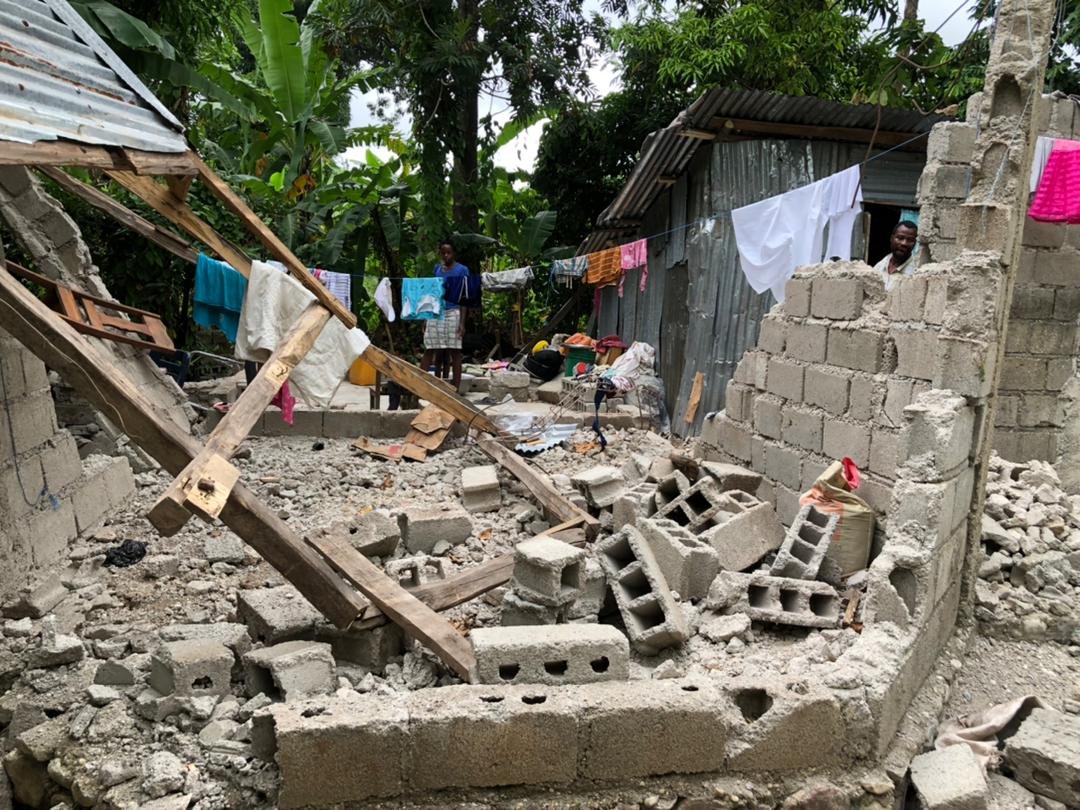The anemic humanitarian response in Périgny
In Périgny, a locality in the second section of Camp-Perrin reports that humanitarian aid, particularly from the government is almost non-existent. Furthermore, Sofia Loréus, the government representative in this department, remains conspicuously absent.
OEASH (Organisation pour une Écologie Active au service d'Haïti) is an environmental organization founded in 2009. They have been active in soliciting aid for victims of the August 14 earthquake in the affected areas. This organization is headed by Pascal Benoit, a native of Camp-Perrin. He has worked with local farmers and food relief organizations for the past five years, notably Food for the Poor. OEASH denounces the government's representative in the region, Minister for the Status of Women and Women's Rights, Sofia Loréus, for her inaction.
“Everyone heard that the government was seeking to support earthquake victims. However, two months after the earthquake, not one government official has made it Périgny,” shared Mr. Benoit.
Tourist attractions, churches, schools, and other public and private enterprises are nearly all destroyed. The only exceptions are the natural site (Saut-Mathurine) and religious site (Peristyle of the mambo Yolande Vital). On the surface, net losses appear to be in the tens of millions of gourdes. The different harvests being prepared here such as, peas (congo and black peas, two local bean species) and yams, were destroyed, according to OEASH.
Pascal Benoit confirms that Projet Sainte-Anne was the first to offer assistance. This group of diaspora natives of Camp Perrin compensated for the absence of the government led by de facto Prime Minister Ariel Henry by providing rice, oil, sugar, water, and toiletries.
"We give ourselves over to our neighbors, our families, and God at Périgny. The government had let us die if we waited for it," he proclaims.
OEASH and the community of Périgny beseech the government
Pascal Benoit believes that the government must be able to do something. It must avoid repeating the mistakes of 2010. The government should offer locally accessible items, reactivate small and medium-sized businesses (SMEs), and acquire locally available products to assist families financially. He also suggests that the government cover all of the local children's school tuition for this year and promote rebuilding efforts. Mr. Benoît proposes that natural and religious sites be protected, that secondary roads be redeveloped, that the road leading to Bèdimel (Aquin) be completed, and that construction continue on the international airport Antoine Simon.
Pascal Benoit advises against any carelessness in the rebuilding process. One immediate consequence to failing to rebuild, according to him, is an increase in the migration to mega-cities, particularly Port-au-Prince, as well as an increase in the number of armed gangs.
Périgny is representative of many localities which is completely without EDH. The community looks to NGO’s, philanthropists and the next generation of politicians for help.

